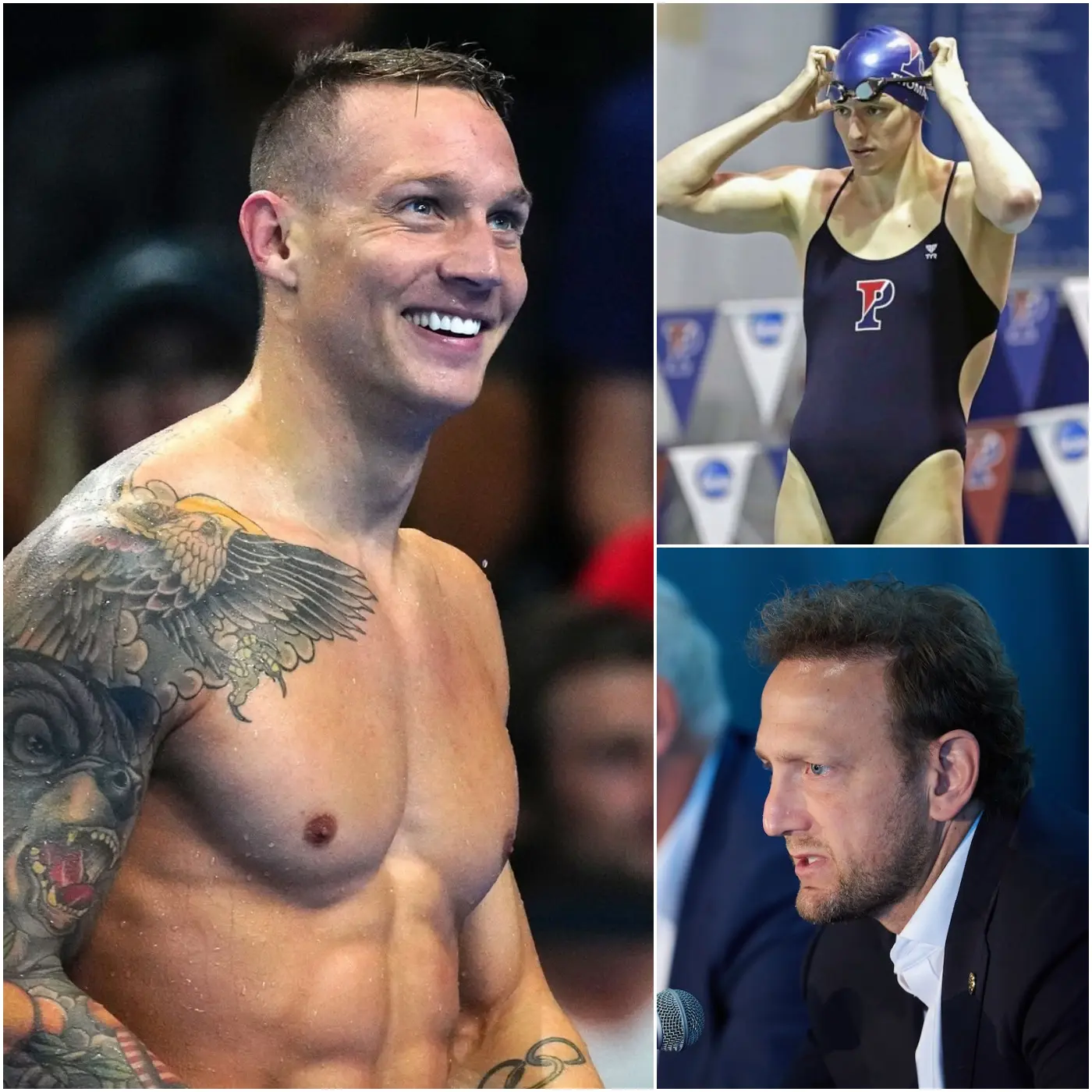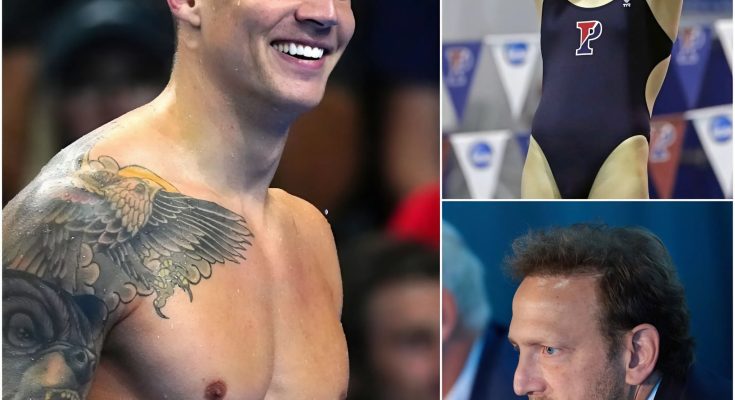“Remove him!” The explosive demand echoed through the swimming world after Olympic champion Caeleb Dressel and several other male swimmers publicly declared they would not compete at the 2028 Olympics if Lia Thomas were allowed to enter men’s events.

The controversy erupted after growing tensions surrounding Thomas’s eligibility and gender status. Many male swimmers voiced concerns about fairness, privacy, and comfort, saying they feared sharing facilities or competing under unclear gender regulations.
Dressel’s statement quickly ignited global attention. He emphasized the importance of maintaining fairness and respect in men’s competitions, while also expressing frustration toward governing bodies for what he called “a lack of decisive action” on the issue.
Following his remarks, several U.S. swimmers joined the boycott threat, uniting under the belief that the inclusion of Lia Thomas in men’s categories would disrupt competitive integrity. Their stance drew both support and outrage from across the sports community.

One anonymous swimmer reportedly said, “We are terrified of having to share a locker room with someone like that; she is no longer a man like us.” The blunt remark fueled a fiery public debate on gender, respect, and inclusion.
Social media quickly turned the controversy into a global spectacle. Hashtags demanding Thomas’s removal from Olympic eligibility trended worldwide, while LGBTQ+ advocates condemned the comments as discriminatory and deeply harmful.
World Aquatics, the international federation overseeing swimming, was soon pressured to respond. After several days of internal review, the organization issued a firm decision that sent shockwaves through the global sports scene.
The federation announced that Lia Thomas would not be allowed to participate in the 2028 Olympics, effectively imposing a permanent Olympic ban. The ruling was justified as a move to preserve competitive integrity and biological standards.
Male swimmers reportedly cheered the decision, viewing it as a victory for fairness and safety. Many athletes expressed relief, claiming that the uncertainty surrounding Thomas’s participation had caused unease throughout the men’s division.
Critics, however, condemned the ruling as a step backward for inclusivity in sports. Advocacy groups accused World Aquatics of yielding to pressure and fostering a hostile environment for transgender athletes seeking fair opportunities to compete.

Lia Thomas herself has remained largely silent, though sources close to her suggest she feels devastated and betrayed by the decision. Her supporters argue that she has been unfairly targeted by media and athletes alike since her emergence in elite swimming.
Sports psychologists warn that such controversies can leave lasting emotional scars. The debate around Thomas has shifted from sportsmanship to personal identity, blurring the lines between athletic regulation and human dignity.
The 2028 Olympics now face a reputational challenge, as discussions about inclusion and equality intensify. Organizers must navigate between protecting fairness in competition and respecting the evolving understanding of gender diversity.
Experts note that gender inclusion in sports remains one of the most complex issues of modern athletics. While fairness in competition is vital, the human impact of exclusionary decisions cannot be ignored without consequence.

For Dressel and others, the ruling represents a decisive end to uncertainty. They believe it ensures a “level playing field” and reaffirms traditional definitions of men’s competition. For others, it symbolizes a painful rejection of progress.
The World Aquatics decision may set a precedent for future Olympic policies. How other federations respond will determine whether this marks the beginning of a global standard or the start of deeper division within sports governance.
As public reaction continues to grow, the story of Lia Thomas reflects more than one athlete’s dream being denied—it captures a defining conflict between science, identity, and the values that shape modern athletic competition.
The swimming community now stands divided between those who celebrate the decision as a restoration of fairness and those who mourn it as a betrayal of inclusivity. Whatever one’s view, the impact of this moment will echo far beyond 2028.


